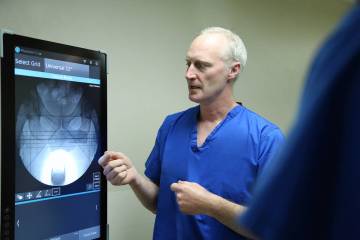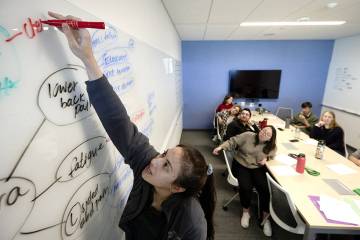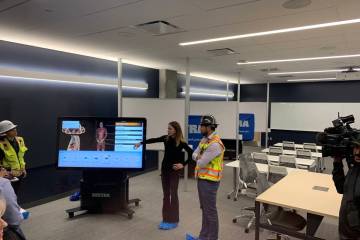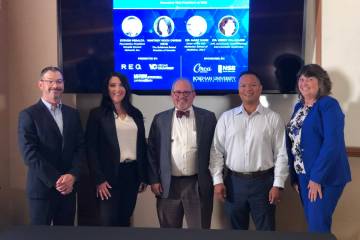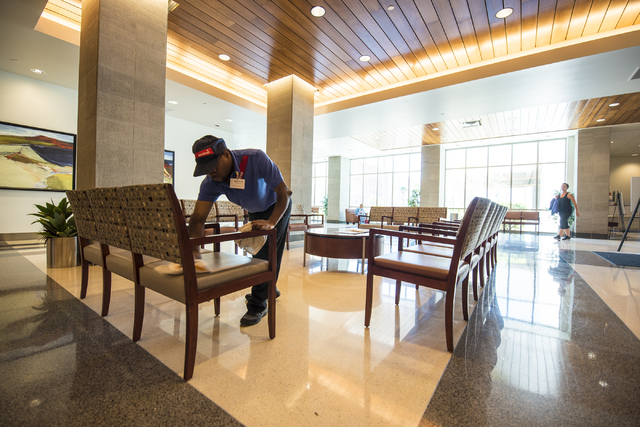
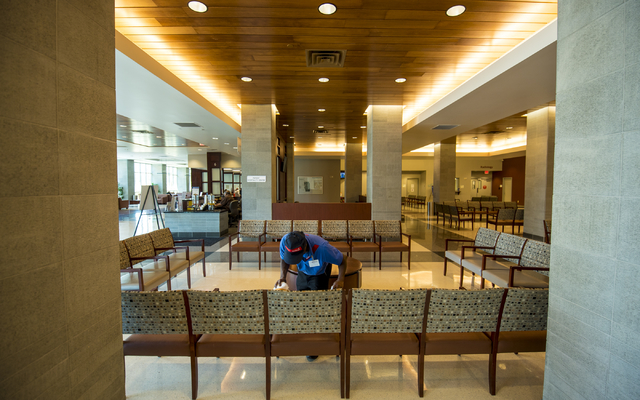
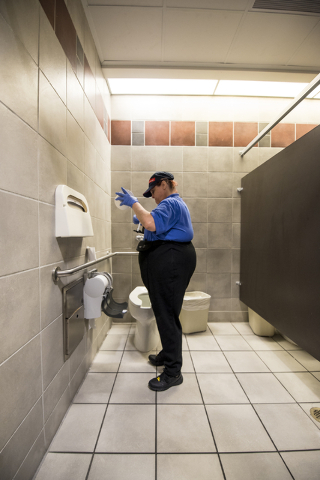
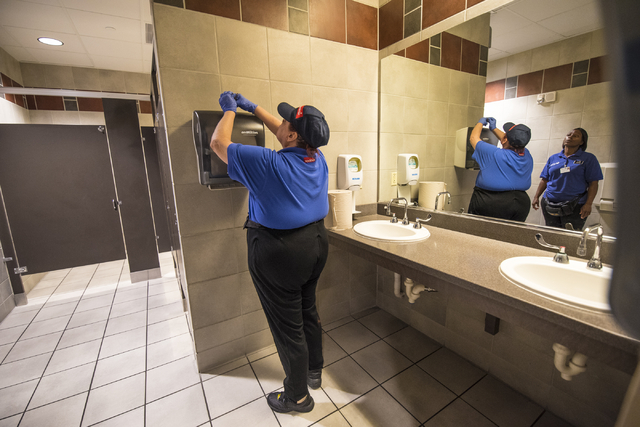
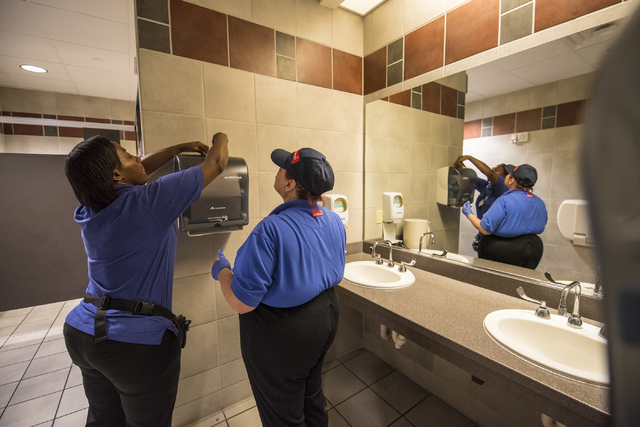
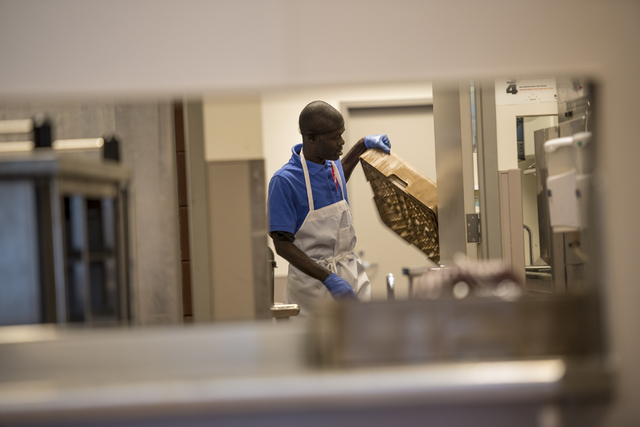
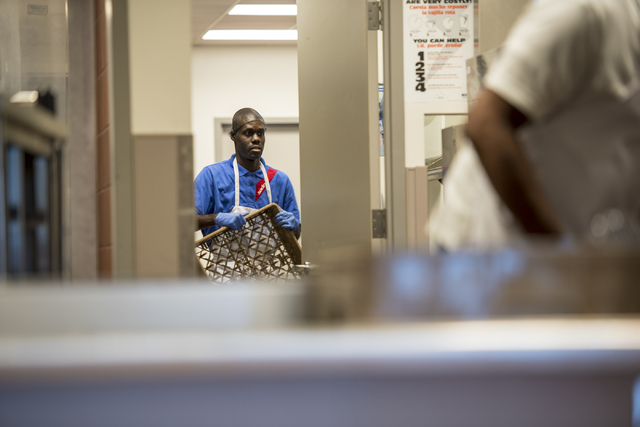
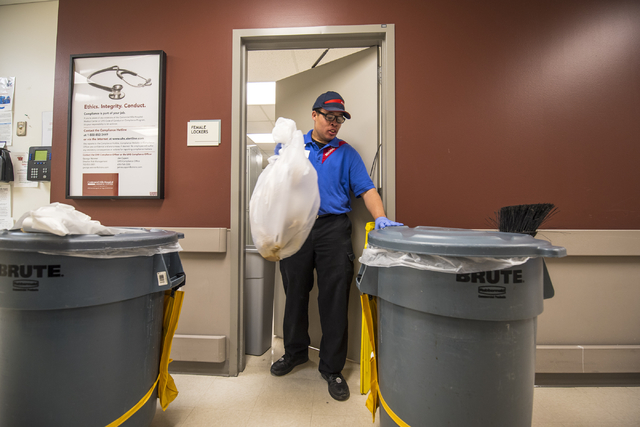
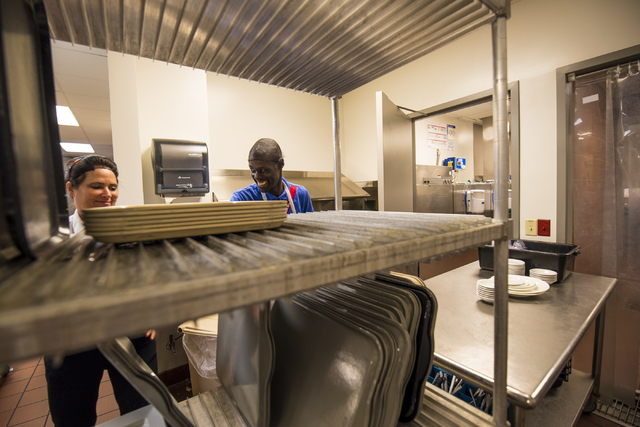
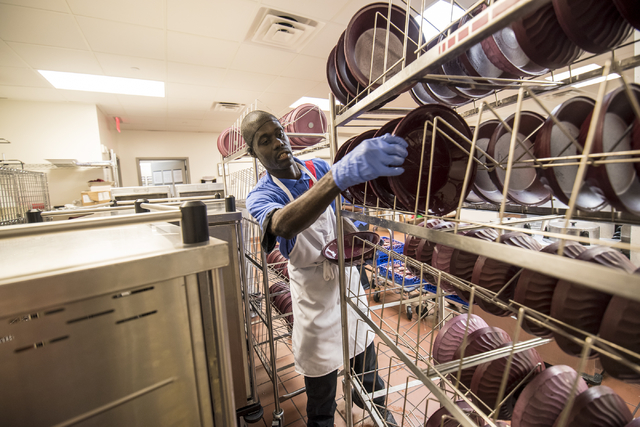
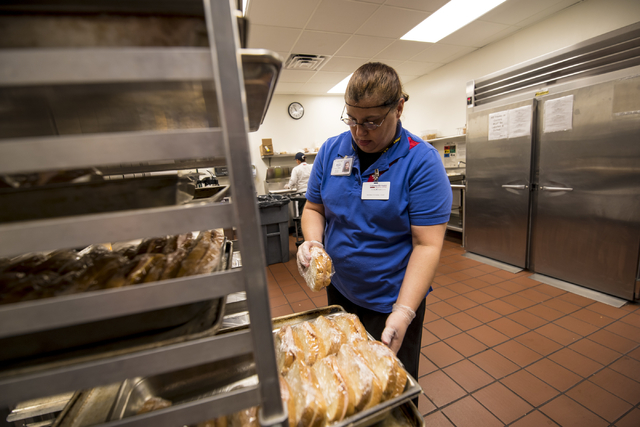
Amanda Shipp sums up Opportunity Village’s mission statement as “pride, purpose and paycheck.”
As the organization’s director of program services, she is proud of the group’s new Pathway to Work program, which helps train its clients to move from employment at the Opportunity Village Center to jobs at or above minimum wage in the mainstream Las Vegas business community.
The program is designed for what she calls “OVIPs,” or people with intellectual disabilities. “It’s a training start for individuals in our community to have a work experience in a variety of different tasks,” Shipp said. “Then our goal is to find a job within the community for the person.”
Successful candidates will have good attendance and punctuality, good interpersonal skills, the ability to remain self-directed and on task and meet physical requirements for four to five hours a day. They must be able to get a Nevada health card and comply with the hiring standard at Centennial Hills Hospital, which employs OVIPs.
A job developer, or coach, works with each OVIP to prepare a resume, complete job applications and learn interview techniques, Shipp said. They work on social skills, public interaction, customer service and cleaning tasks “to see what their strengths and weaknesses are, their likes and dislikes, and then working on them to develop their career path.”
The training allows flexibility in placement, she explained. “We’re assessing their weaknesses and strengths” as they go along, including their stamina, appearance and tardiness. “Just working on some of the basic skills to get them ready to be successfully placed in the work community,” Shipp said.
This can take three to six months and is a combination of classroom and hands-on training.
Job developers work with OVIPs to prepare them for jobs and follow up with additional coaching if needed once the job starts.
Part of the impetus to start this program was the Workforce Innovative Opportunity Act, which was passed by Congress last summer and will become effective July 1. It is the first major reform to federal job training programs in more than 15 years. The act is designed to improve the coordination of employment and training services across federal agencies, strengthen collaboration with state and local partners and provide Americans with increased access to training, education and other support to succeed in the job market and their careers. Part of the law is about moving those with the highest unemployment rates, which includes intellectually disabled people, into the conventional workforce.
“This program is unique because we partner with the Desert Regional Center, the Department of Employment, Training and Rehabilitation and we’re actually providing work experience in the community that pays the participants $8.25 an hour,” said Shipp. “We’re also looking at their benefits, their income, helping them to assess how much to earn in the field to live independently. So it’s not just work; it’s about their entire life.”
The training facility is in Centennial Hills Hospital, and OVIPs are provided work experience in the hospital, Shipp said. “This is a training work experience that they are paid for, and from there, we’re hoping they will get a job somewhere in the community.” It could be at Centennial Hills Hospital or elsewhere. At the hospital, they earn $8.25 an hour for up to four hours a day.
Opportunity Village provides the job developers, and the employment department funds the wages paid to the workers.
“Vocational rehabilitation is all about employment,” said Janice John, deputy administrator for the Rehabilitation Division. “We are trying to provide competitive employment opportunities for people with the most significant disabilities, and we want this to happen in the most integrated possible settings.”
Competitive employment, John said, means “people with disabilities are working side by side with people who are nondisabled, and they’re doing the same job for the same wage and they have the same opportunities for advancement and training.”
The program began in February and resulted in one successful placement at Nellis Crosswinds Dining Facility in April.
A similar partnership began in June 2014 with Boulder Station. Several OVIPs placed there have become regular employees.
Shipp said, “It gives them a purpose. Whether they’re out there earning their money to pay bills, or to save up to purchase their own vehicle in the future, it’s a lot of pride for the people that we’re serving.”
The only challenge, Shipp said, is that sometimes participants don’t quite fit with the placement, and they have to be further trained and placed in a different environment. “But the great thing about it is they have an opportunity to experience the community setting, and we can work on how they can revisit that setting in the future to be successful.”
“Pathway to Work is one of the best programs I have had the opportunity to support,” said Gina Lewis, human resources administrator at Centennial Hills Hospital. “The participants arrive energetic and ready to work. The staff appreciate the level of support they provide each day.”


